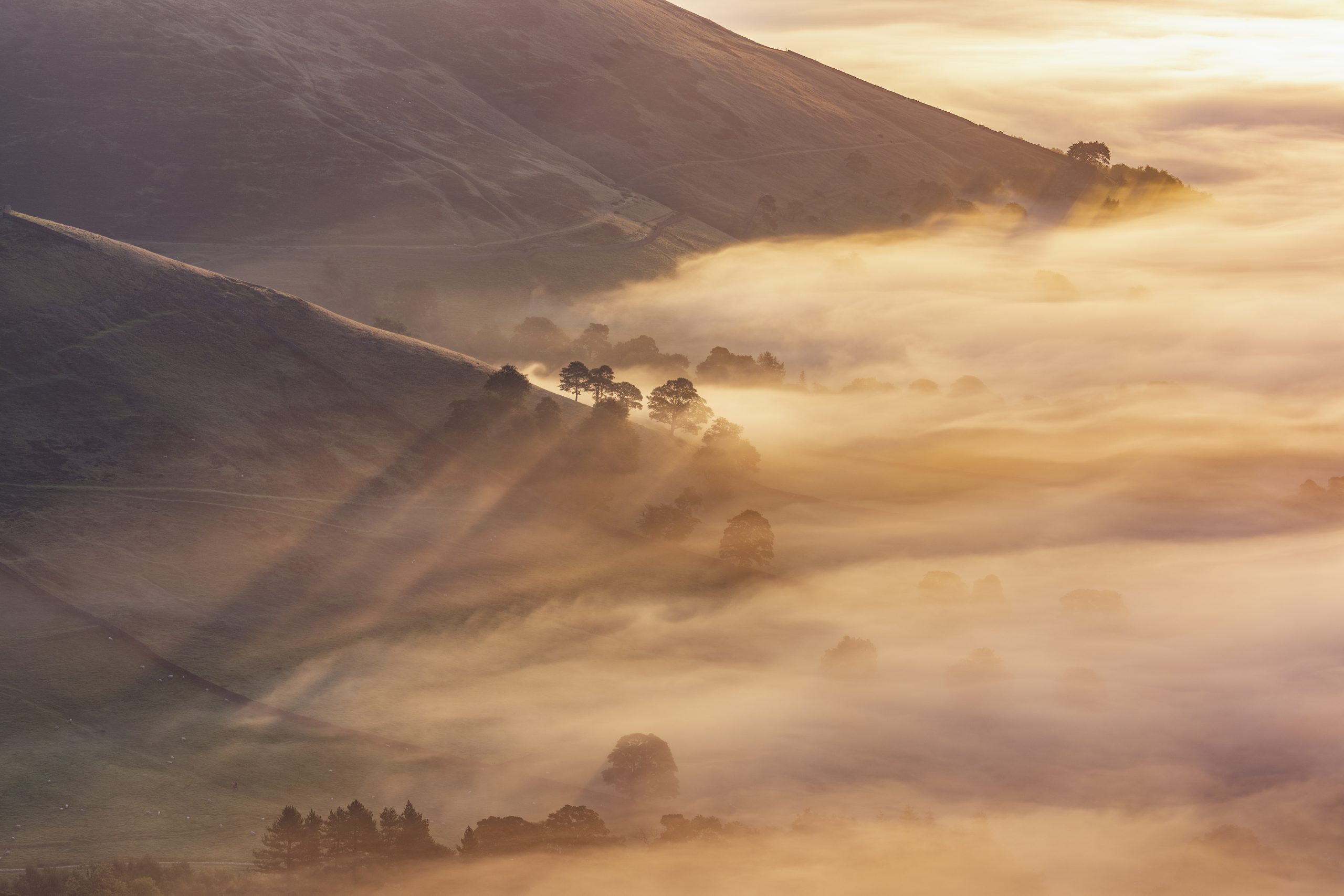Jonathan Self: 'Ten yards from shore, I felt completely and utterly alone, the last man on earth'
A wintry dip in the ocean revitalises Jonathan Self.


Fog, with apologies to Dickens, everywhere. Fog up on the hill behind the house, fog down in the valley. Fog on our little stream, where it meanders through the water meadow.
Fog in the town, fog in the village. Fog in the harbour, creeping into the cabins of the fishing boats; fog lying out on the yards and hovering in the rigging of the few yachts still in the water; fog drooping onto the gunwales of the ferry and the smaller boats.
Fog in the eyes and throats of farmers; fog snaking through the door of Casey’s bar; fog enlivening breaktime in the school playground. Chance people on the harbour wall peeping over the parapet into a nether sky of fog, with fog all around them, as if they were up in a balloon and hanging in the misty clouds. Fog on the saltmarshes and in the reedbeds where the otters live.
The dogs play a game. They rush off, barking madly, into the wall of white fog until they can’t see me and I can’t see them — clearly, they agree with W. B. Yeats, who said: ‘Man is in love and loves what vanishes’ — and then they rush back, barking madly, jumping up to be congratulated and petted.
It makes the journey to the little cove where I intend to bathe rather slow and noisy. I am neither a strong nor an enthusiastic swimmer, but occasionally, very occasionally, I yield to the call of the sea. A cold dip (which is the only sort of dip you are going to get off the west coast of Ireland) is supposed to boost the immune system, reduce stress and promote better sleep.
"Plato actually believed that fog boosted memory and he could be right"
Generally speaking, I hate the whole thing: the anticipation of being cold, actually being cold and walking home cold, wet and covered in a thin layer of salt, seaweed and sand. The only good bits are the après baignade (a hot drink with a shot of something medicinal taken in front of the fire) and the mild sense of superiority that the entire experience engenders.
Swimming in fog, however, like swimming at night, is different. It is exciting and it is dangerous. A bay that I have known all my life, where every bit of rock, every stretch of sand, every buoy is familiar to me, becomes a place of mystery. Ten yards from shore, I felt completely and utterly alone, the last man on earth, and yet I couldn’t resist swimming further and further out.
Exquisite houses, the beauty of Nature, and how to get the most from your life, straight to your inbox.
Plato actually believed that fog boosted memory and he could be right. Treading water, taking in huge gulps of foggy air, I suddenly remembered a scene I hadn’t witnessed for 25 years. Our farm in Australia was located on the side of a mountain and most mornings sat above a sea of fog, exactly like the one in Friedrich’s painting Der Wanderer über dem Nebelmeer. Soon after dawn, a flock of brightly coloured king parrots from the forest below would burst up through the cloud, circle and roost on our pergola.
In Proust’s À la recherche du temps perdu, ‘a cold, autumn fog’ makes the narrator feel as if he had been born again. My grandmother said that during the Second World War fog always made her feel safe, as if the Luftwaffe wouldn’t be able to find her. In Irish, a féth fíada is a magical fog that renders one’s presence invisible to others.
Worried that the presence of others — and everything else — was invisible to me, I swam slowly back to the beach and made my way home. Fog still everywhere.

Jonathan Self: Don't measure your life in years — measure it in dogs
Jonathan Self celebrates a birthday for a beloved dog.

Jonathan Self: 'Tend your vines and crush the horror'
Jonathan Self has turned his eyes inward during social isolation – not just to his mental health, but to his garden.

Credit: Alamy
Jonathan Self: 'Town folk know pleasures, country people joys'
Live in a village and you'll live longer, says Jonathan Self — just be prepared for everyone to know your business.

"Hippocrates's advice — 'if you're in a bad mood, go for a walk' — would have me constantly perambulating"
Jonathan Self on the End of the World, ancient battlegrounds and friendly pigs.

Jonathan Self: 'Our early potatoes aren’t going to be that early'
Between a late start and back-breaking work, Jonathan Self tries his hand at growing the humble spud.

Credit: Alamy Stock Photo
Jonathan Self: Our postman delivers 1,000 items a week — and less than 50 are 'real' letters
Jonathan Self laments the fact that we're losing the art of writing letters.

Credit: Getty Images
‘I got the blues thinking of the future, so I left off and made some marmalade'
Jonathan Self on the Three Kings, gloomy January days and the joy of marmalade.
After trying various jobs (farmer, hospital orderly, shop assistant, door-to-door salesman, art director, childminder and others beside) Jonathan Self became a writer. His work has appeared in a wide selection of publications including Country Life, Vanity Fair, You Magazine, The Guardian, The Daily Mail and The Daily Telegraph.
